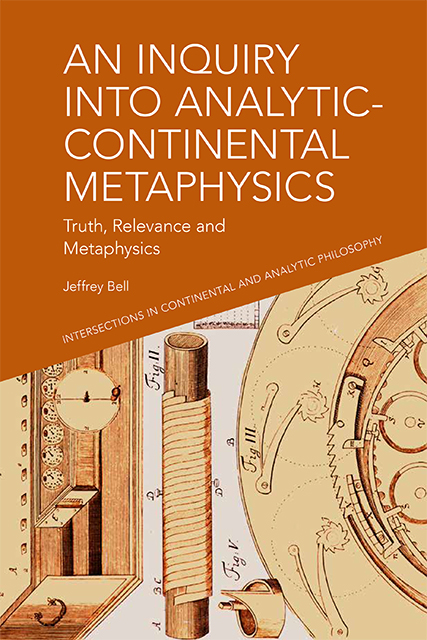Book contents
- Frontmatter
- List of Contents
- Acknowledgements
- Introduction
- §1 Problem of the New
- §2 Problem of Relations
- §3 Problem of Emergence
- §4 Problem of One and Many
- §5 Plato and the Third Man Argument
- §6 Bradley and the Problem of Relations
- §7 Moore, Russell and the Birth of Analytic Philosophy
- §8 Russell and Deleuze on Leibniz
- §9 On Problematic Fields
- §10 Kant and Problematic Ideas
- §11 Armstrong and Lewis on the Problem of One and Many
- 12 Determinables and Determinates
- 13 The Limits of Representational Thought
- 14 Learning from a Cup of Coffee
- 15 Carnap and the Fate of Metaphysics
- 16 Truth and Relevance
- Conclusion
- Bibliography
- Index
§8 - Russell and Deleuze on Leibniz
Published online by Cambridge University Press: 25 October 2023
- Frontmatter
- List of Contents
- Acknowledgements
- Introduction
- §1 Problem of the New
- §2 Problem of Relations
- §3 Problem of Emergence
- §4 Problem of One and Many
- §5 Plato and the Third Man Argument
- §6 Bradley and the Problem of Relations
- §7 Moore, Russell and the Birth of Analytic Philosophy
- §8 Russell and Deleuze on Leibniz
- §9 On Problematic Fields
- §10 Kant and Problematic Ideas
- §11 Armstrong and Lewis on the Problem of One and Many
- 12 Determinables and Determinates
- 13 The Limits of Representational Thought
- 14 Learning from a Cup of Coffee
- 15 Carnap and the Fate of Metaphysics
- 16 Truth and Relevance
- Conclusion
- Bibliography
- Index
Summary
1. Russell on the Task of Analysis (and the Taste of Coffee)
To set the stage for the Platonic arguments to follow, let us first imagine that Russell has taken up a temporary position as a coffee taster, identifying the various attributes of a wide array of coffees as they come into London. After a few weeks of training, Russell shows up to the coffee warehouse and takes his seat next to another, more experienced taster. With the first coffee he tastes, Russell identifies it as a light body coffee with fruity notes and sweet aromatics. The more experienced taster agrees, though he adds that the fruity notes are actually raspberry in character. Russell tastes the coffee again and excitedly agrees, ‘That's it, exactly!’ he says. The experienced taster also identifies a hint of molasses. Russell tastes the coffee again; this time he is not as sure he tastes the molasses his more experienced colleague tastes, but he trusts the latter's abilities and reputation enough to assume that the molasses notes are likely there.
Back in his Bloomsbury flat, Russell reflects upon how the day's experience typifies his more general understanding of analysis. In his 1940 lectures, Russell argues that all judgments of perception are ‘of the form “P is part of W”’, and thus when we say of ‘this’ coffee that it has raspberry notes we are making the perceptual judgment that P (raspberry notes) is a part of W, the coffee being tasted, and ‘what we naturally call “this”, is a complex which the judgment of perception partially analyses’ (Russell 1940, 315). Moreover, Russell recognises that ‘we can experience a whole W without knowing what its parts are, but through attention or noticing we can gradually discover more and more of its parts’ (315). Russell did indeed experience the whole of the coffee's taste, and through focused attention, and with a little help from his experienced colleague, he was able to discover more parts of the coffee’s taste.
- Type
- Chapter
- Information
- An Inquiry into Analytic-Continental MetaphysicsTruth, Relevance and Metaphysics, pp. 50 - 64Publisher: Edinburgh University PressPrint publication year: 2022

